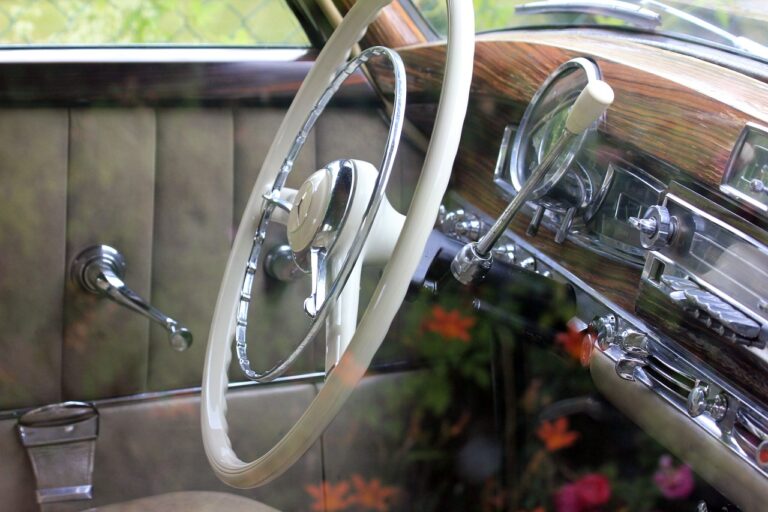The Benefits of Regularly Checking Your Car’s Differential: 11xplay online id, Diamondexch9 login, Sky exchange registration
11xplay online id, diamondexch9 login, sky exchange registration: Regularly checking your car’s differential may not always be at the top of your to-do list, but it is an important maintenance task that can help ensure the longevity and performance of your vehicle. The differential is a crucial component of your car’s drivetrain, responsible for transferring power from the engine to the wheels. By taking the time to inspect and maintain your differential on a regular basis, you can potentially avoid costly repairs and keep your car running smoothly. In this article, we’ll explore the benefits of regularly checking your car’s differential and why it’s essential to include this task in your routine maintenance schedule.
**What is a differential?**
Before we dive into the benefits of checking your car’s differential, let’s first understand what a differential is and how it works. The differential is a set of gears located within the axle assembly that allows the wheels to rotate at different speeds while maintaining power from the engine. This is crucial for turning corners, as the outside wheel needs to travel a greater distance and rotate faster than the inside wheel. Without a properly functioning differential, your car would struggle to maneuver around corners and experience excessive wear on the tires.
**Benefits of regularly checking your car’s differential**
1. **Preventative maintenance**: Regularly checking your car’s differential allows you to catch any potential issues early on before they escalate into more significant problems. By inspecting the differential fluid, seals, and gears, you can identify wear and tear and address them promptly, saving you time and money in the long run.
2. **Improved performance**: A well-maintained differential ensures that power is evenly distributed to the wheels, resulting in better traction and handling. This can make a noticeable difference in how your car performs on the road, especially in challenging driving conditions such as wet or icy roads.
3. **Extended lifespan**: By keeping your differential in good condition, you can extend the lifespan of this critical component and avoid premature wear and tear. Regular maintenance can help prevent breakdowns and costly repairs, allowing you to enjoy your car for longer.
4. **Fuel efficiency**: A properly functioning differential can contribute to better fuel efficiency by ensuring that power is transferred efficiently from the engine to the wheels. By checking and maintaining your differential regularly, you can help improve your car’s overall fuel economy.
5. **Safety**: A malfunctioning differential can impact your car’s stability and control, increasing the risk of accidents on the road. By regularly checking your differential, you can ensure that your car is safe to drive and minimize the chances of unexpected issues while on the road.
6. **Peace of mind**: Knowing that your car’s differential is in good condition can provide you with peace of mind while driving. Regular maintenance can help you avoid potential breakdowns and issues, allowing you to focus on enjoying the ride without worrying about unexpected repairs.
**How often should you check your car’s differential?**
It is recommended to check your car’s differential at least once a year or every 12,000 to 15,000 miles, whichever comes first. However, if you frequently drive in challenging conditions or tow heavy loads, you may want to consider more frequent inspections to ensure optimal performance.
**How to check your car’s differential**
Checking your car’s differential is a relatively straightforward process that can be done at home or by a professional mechanic. Here are some key steps to follow:
1. **Inspect the differential fluid**: Start by locating the differential fluid fill plug and removing it to check the fluid level. The fluid should be at the proper level and in good condition clear and free of debris. If the fluid appears dirty or low, it may indicate a leak or contamination, which should be addressed promptly.
2. **Check the seals**: Inspect the differential seals for any signs of leaks or damage. Leaking seals can lead to a loss of fluid and potential damage to the differential gears, so it’s important to address any issues promptly.
3. **Inspect the gears**: Lastly, visually inspect the differential gears for any signs of wear or damage. Listen for any unusual noises coming from the differential while driving, as this could indicate a problem with the gears that needs to be addressed.
**FAQs**
1. **How do I know if my car’s differential is failing?**
– Signs of a failing differential may include grinding or whining noises, difficulty turning corners, leaking fluid, or uneven tire wear. If you notice any of these symptoms, it’s essential to have your differential inspected by a professional mechanic.
2. **Can I check my car’s differential on my own?**
– Checking your car’s differential can be done at home if you have the necessary tools and knowledge. However, if you’re not familiar with car maintenance or unsure of what to look for, it’s best to have a professional mechanic perform the inspection to ensure accuracy and prevent any potential issues.
3. **How much does it cost to repair a differential?**
– The cost of repairing a differential can vary depending on the extent of the damage and the make and model of your car. In general, repairs can range from a few hundred to several thousand dollars, so it’s essential to address any issues with your differential promptly to avoid costly repairs down the line.
In conclusion, regularly checking your car’s differential is a critical maintenance task that can help ensure the longevity and performance of your vehicle. By inspecting the differential fluid, seals, and gears on a regular basis, you can prevent potential issues, improve performance, extend the lifespan of your car, and drive with confidence knowing that your car is safe and well-maintained. So, don’t overlook the importance of checking your car’s differential your car will thank you for it in the long run!







